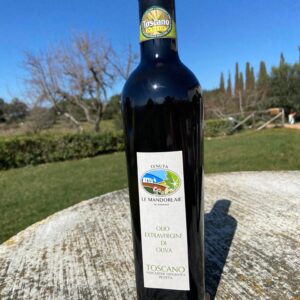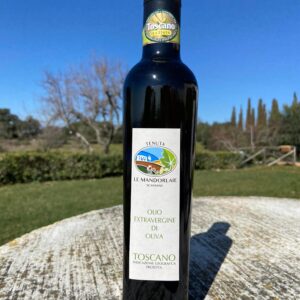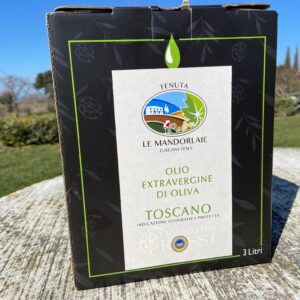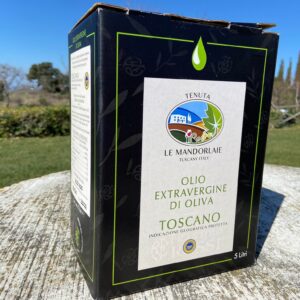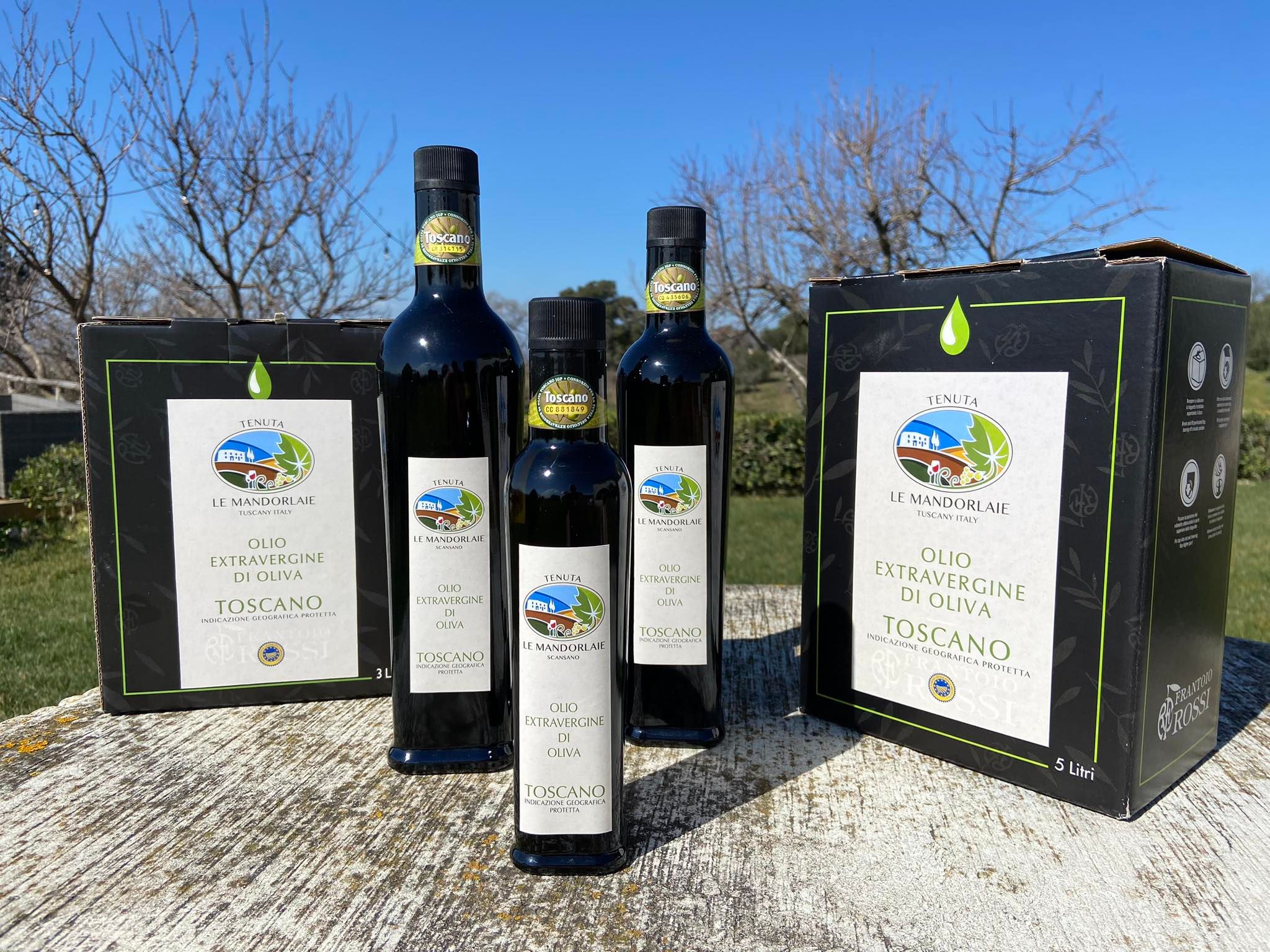
What are the benefits of bag in box Extra Virgin Olive Oil?
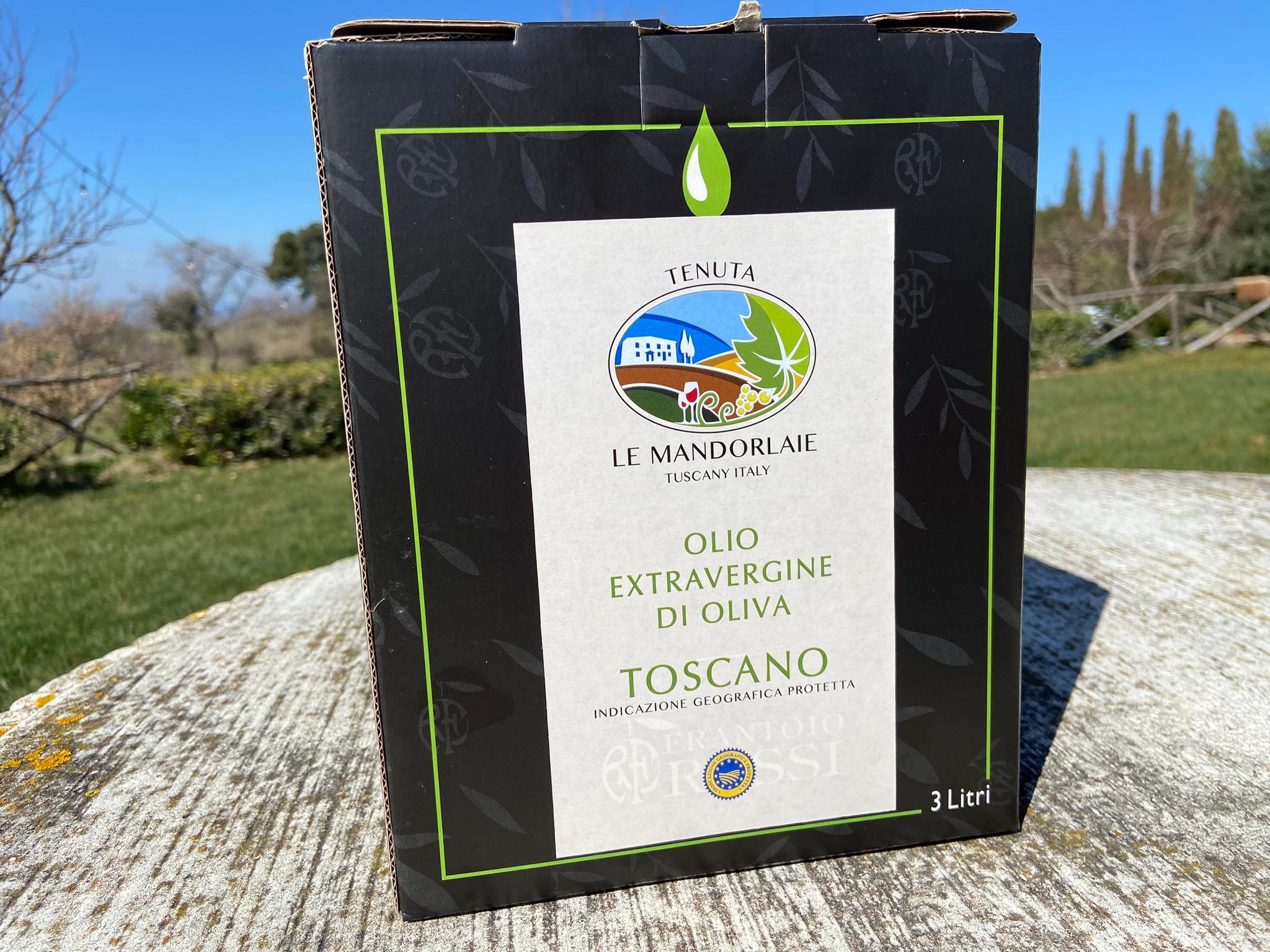
Bag in box extra virgin olive oil packaging is often considered effective at keeping extra virgin olive oil (EVOO) fresh for several reasons, the first being reduced Air Exposure, Bag-in-box containers have a bag or bladder inside, which collapses as the product is dispensed. This design minimizes the amount of air inside the container, preventing prolonged exposure of the olive oil to oxygen. Oxidation is a major factor in the degradation of olive oil quality, and reduced air contact helps preserve its freshness.
Protecting your bag in box extra virgin olive oil
Many Bag in box extra virgin olive oil designs are made of opaque or dark materials that protect the olive oil from light exposure. Light can cause oxidative reactions and lead to the breakdown of compounds in EVOO, resulting in off-flavors and a shorter shelf life. Bag-in-box containers typically have airtight seals, which help maintain the quality of the olive oil by preventing air from seeping in and oxidizing the oil. Traditional glass or plastic bottles may not provide as tight and reliable seals.
Bag in box extra virgin olive oil packaging often includes a tap or spout for dispensing the olive oil. This minimizes the risk of exposing the entire container to air during each use, which can happen when repeatedly opening and closing a bottle. Bag-in-box packaging comes in various sizes, making it easy for consumers to choose the right volume for their needs. Smaller sizes can be consumed more quickly, reducing the time the olive oil is exposed to air.
Bag-in-box containers are more durable and less prone to breakage compared to glass bottles. This can help prevent leaks and oxidation caused by damaged packaging. The combination of reduced air exposure, light protection, and good seal integrity contributes to a longer shelf life for olive oil in bag-in-box packaging compared to some other traditional containers.
Bag-in-box packaging is often considered more environmentally friendly than some other packaging options. It typically uses less plastic, and its design allows for efficient dispensing, reducing waste. This can be appealing to consumers looking for sustainable packaging choices. Bag-in-box packaging is often more cost-effective for both producers and consumers. It reduces transportation costs due to its lightweight design and offers better protection against spoilage, which can result in fewer product losses and waste.
The tap or spout on bag-in-box packaging makes it easy for consumers to use the product without the risk of spillage. This convenience can be especially beneficial in professional kitchens and foodservice establishments. Bag in box extra virgin olive oil containers are stackable and take up less space than traditional bottles, making them easy to store in both homes and commercial kitchens.
Looking after your extra virgin olive oil
It’s important to note that while bag-in-box packaging offers many advantages for preserving olive oil freshness, the overall quality and shelf life of the oil also depend on factors such as the initial quality of the EVOO, storage conditions, and temperature control. Proper storage in a cool, dark place is essential for maintaining the best quality of any olive oil, regardless of the packaging type.
In conclusion, Bag in box extra virgin olive oil packaging is a practical and effective choice for preserving the freshness and quality of extra virgin olive oil. Its ability to reduce air exposure, protect against light, and provide an airtight seal makes it a preferred option for consumers and producers alike. The convenience, durability, and cost-effectiveness of bag-in-box packaging, along with its environmental benefits, make it an appealing choice for those seeking both quality and sustainability in their olive oil packaging. When used in conjunction with proper storage practices, bag-in-box extra virgin olive oil can maintain its exceptional flavor and nutritional properties for an extended period, ensuring a delightful culinary experience for consumers.
The history of bag in box packaging
Bag-in-box packaging, also known as flexible packaging, has a history that spans several decades. Its development and adoption have evolved over time, driven by the need for more convenient and efficient packaging solutions, especially for liquid products like beverages and liquids, including extra virgin olive oil. Here is a brief overview of the history of bag-in-box packaging:
Early Roots (1950s – 1960s)
The concept of flexible bag-in-box packaging has early roots dating back to the 1950s. It was initially developed for industrial and commercial use for liquids, such as motor oil and chemicals.
Early designs used a flexible bag or bladder inside a rigid carton or box, which protected the contents and allowed for efficient dispensing.
Entry into the Beverage Industry (1965)
Bag-in-box packaging made its first significant entry into the beverage industry in 1965 when the Australian wine company, Penfolds, introduced it as a packaging solution for shipping wine. This innovation aimed to reduce the risk of spoilage and improve transportation efficiency.
The bag-in-box wine packaging became popular because it preserved the quality of wine by minimizing exposure to air and light.
Adoption in Food and Beverage Industries (1970s – 1980s)
In the 1970s and 1980s, bag-in-box packaging gained broader acceptance, especially in the food and beverage industries. It was increasingly used for products like fruit juices, dairy products, and syrups.
The packaging format was found to be not only effective at preserving product quality but also more environmentally friendly, as it used less material and created less waste compared to traditional packaging.
Expansion into Multiple Industries (1990s – 2000s)
The bag-in-box concept expanded into a wide range of industries during the 1990s and 2000s. It became popular for products like water, liquid detergents, and liquid foods.
The packaging format’s versatility and ability to accommodate various product types made it a popular choice for both manufacturers and consumers.
Improved Designs and bag in box Innovations
Over the years, bag-in-box packaging has seen various design improvements. Manufacturers have developed better seals, spouts, and materials to enhance product protection and user-friendliness.
Innovations such as aseptic bag-in-box packaging, which allows for long shelf lives without refrigeration, have been introduced.
Sustainable and Environmental Focus
In recent years, there has been a growing emphasis on the environmental benefits of bag-in-box packaging. It is considered more sustainable than some other packaging options due to its lightweight design and potential for reduced waste.
Manufacturers have also focused on developing more eco-friendly materials and production processes.
Widespread Adoption
Bag-in-box packaging is now widely used in various industries, including the food and beverage industry including bag in box extra virgin olive oil, industrial and institutional applications, and even the medical field for products like intravenous fluids.
The history of bag-in-box packaging reflects a continual evolution and adaptation to changing consumer and industry needs. Its efficiency in preserving product freshness, reducing waste, and offering cost-effective solutions has made it a popular choice for many liquid products across different sectors. The ongoing developments in materials and design suggest that bag-in-box packaging will continue to play a significant role in the packaging industry.


